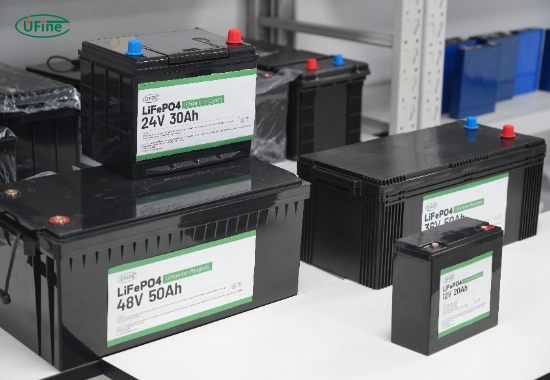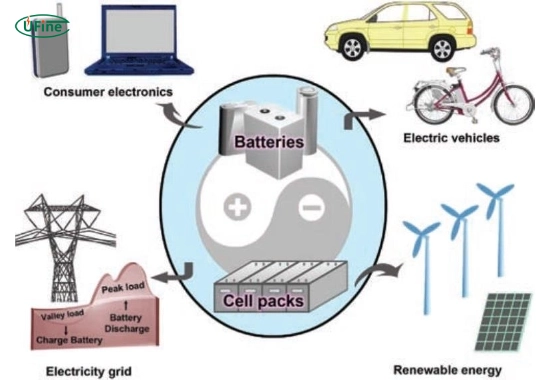
- Part 1. What is a high amp hour battery?
- Part 2. How does a high amp hour battery work?
- Part 3. Why is amp hour important?
- Part 4. Pros and cons of high amp hour batteries
- Part 5. Where are high amp hour batteries used?
- Part 6. Are high amp hour batteries larger?
- Part 7. Types of high amp hour batteries
- Part 8. How to choose the right high amp hour battery?
- Part 9. How to maintain high amp hour batteries?
- Part 10. FAQs
When choosing a battery, you often see an “Ah” or amp-hours label. But what does that mean? A high-amp-hour (Ah) battery is a type of battery with a larger energy storage capacity. It plays a key role in determining how long your devices can run and how much power they can deliver. This makes it essential for applications like electric vehicles, solar power systems, and even drones.
In this article, we’ll explain a high-amp-hour battery, why it matters, and how it applies to different technologies. Whether you’re a beginner trying to understand batteries or someone researching for a specific project, this guide will help you make sense of it all.
Part 1. What is a high amp hour battery?
A high-amp-hour battery has a higher energy capacity. Amp-hours (Ah) measure the energy a battery can deliver over time. In simple terms, the higher the Ah, the longer the battery lasts.
For example, if a battery has a capacity of 100Ah, it can deliver 1 amp of current for 100 hours or 10 amps for 10 hours. Devices or systems that need long-lasting power prefer high amp hour batteries.
Part 2. How does a high amp hour battery work?
To understand how these batteries work, you must first know the basics of battery operation.
Batteries store energy as chemical potential. When connected to a device, they convert this chemical energy into electrical energy to power it.
You measure the amount of stored energy in amp hours (Ah), which indicates how much current the battery can supply over a specific time frame. For example, if your device uses 5 amps, a 100Ah battery will last approximately 20 hours (100Ah ÷ 5A = 20 hours). High amp-hour batteries store more energy, allowing them to power devices for longer durations or support higher loads.
Part 3. Why is amp hour important?
Amp hours are important because they determine how long a battery can run before it needs recharging. This is crucial in applications where consistent power is required, such as:
- Electric vehicles (EVs) that need long driving ranges
- Solar systems that store energy to power homes or devices overnight
- Industrial equipment that operates for extended periods without interruption
In these cases, a high amp-hour battery ensures reliability and efficiency.
Part 4. Pros and cons of high amp hour batteries
Pros:
- Longer runtime for devices and systems
- Handles higher loads efficiently
- Improved reliability and performance
- Suitable for a wide range of applications
Cons:
- Higher cost, especially for lithium-ion options
- It may require more space or weight, depending on the type
- Potential for overkill if your devices don’t require high-capacity
Part 5. Where are high amp hour batteries used?
High amp hour batteries are versatile and used in various applications. Let’s explore the most common ones:
1. Electric vehicles (EVs)
EVs require high amp hour batteries to provide long driving ranges. These batteries supply the energy to power the vehicle’s motor, lights, and other systems. The higher the battery capacity, the farther the EV can travel on a single charge.
2. Solar power systems
In solar systems, high amp-hour batteries store energy generated during the day. You can then use this energy at night or during cloudy weather. For example, a 200Ah battery might power a home’s lights and appliances for several hours.
3. Drones
Drones rely on lightweight, high-capacity batteries to stay in the air for extended periods. High amp-hour batteries ensure better flight times and performance for commercial or recreational drones.
4. Boats and RVs
For boats and RVs, high amp hour batteries power onboard systems like refrigerators, lights, and entertainment. They allow users to enjoy off-grid adventures without running out of power.
5. Backup power systems
During power outages, high-amp-hour batteries are used in UPS (Uninterruptible Power Supply) systems to provide backup energy for critical devices like computers, medical equipment, and communication systems.
6. Industrial equipment
Forklifts, heavy machinery, and other industrial tools often use high amp-hour batteries to support long operating hours and demanding conditions.
Part 6. Are high amp hour batteries larger?
A common question is whether high amp hour batteries are physically larger. The answer depends on the battery type:
- Lead-acid batteries: Higher amp hour ratings generally mean larger and heavier batteries.
- Lithium-ion batteries: These batteries have a higher energy density, meaning they can store more energy without significantly increasing size or weight. This is why lithium-ion batteries are popular in EVs and drones.
Part 7. Types of high amp hour batteries
Several types of batteries are available, each with its own strengths and weaknesses. Here are the most common types of high amp hour batteries:
1. Lead-acid batteries
These are traditional batteries used in vehicles and backup systems. While affordable, they are heavy and have a shorter lifespan compared to lithium-ion batteries.
2. Lithium-ion batteries
Lithium-ion batteries are lighter, more efficient, and have a longer lifespan. They are widely used in electric vehicles, drones, and portable electronics.
3. AGM (Absorbed Glass Mat) batteries
AGM batteries are lead-acid batteries that offer better performance and faster charging. People often use them in boats, RVs, and backup systems.
Part 8. How to choose the right high amp hour battery?
When selecting a high amp hour battery, consider the following:
1. Application requirements
Identify how much power your device or system needs. A small drone might need a 20Ah battery, while a home solar system might require multiple 200Ah batteries.
2. Battery type
Choose a battery type based on your needs. Lithium-ion batteries are great for lightweight, high-capacity applications, while lead-acid batteries are better for budget-conscious users.
3. Size and weight
Make sure the battery fits within your space and weight limitations. This is especially important for drones, boats, and RVs.
4. Budget
Lithium-ion batteries are more expensive upfront but last longer. In contrast, lead-acid batteries are cheaper but may require more frequent replacements.
Part 9. How to maintain high amp hour batteries?
Proper maintenance can extend the lifespan of your battery:
- Avoid deep discharges: Letting the battery fully discharge can reduce its lifespan.
- Charge regularly: Keep the battery charged, especially if you don’t use it for long periods.
- Store correctly: Store batteries in a cool and dry environment to prevent damage.
- Monitor performance: Use a battery tester to check the health of your battery periodically.
Part 10. FAQs
-
What does “Ah” mean on a battery?
“Ah” stands for amp hours, which measure a battery’s energy storage capacity. It tells you how long the battery can power at a specific current level. -
Are high amp hour batteries better?
Yes, in most cases. High amp hour batteries last longer and support bigger or more power-hungry devices. However, they might not be necessary for low-power systems. -
Can I use a high amp hour battery in my car?
Yes, as long as the battery is compatible with your car’s electrical system. High amp hour batteries are handy for vehicles with additional electrical equipment, like robust audio systems. -
How long does a high amp hour battery last?
Battery lifespan depends on usage, type, and maintenance. Lithium-ion batteries generally last longer than lead-acid batteries, often providing 5–10 years of service. -
How do I calculate how long my battery will last?
Divide the battery’s amp-hour rating by your device’s current draw. For example, a 100Ah battery powering a 5A device will last 20 hours (100Ah ÷ 5A = 20 hours).
Related Tags:
More Articles

Battery Load Test: A Comprehensive Guide
Step-by-step battery load test guide for car, solar & industrial use. Learn how to load test a battery, interpret voltage charts, and avoid common mistakes.
The Comprehensive Guide to Battery Balancing and Battery Balancer
Discover how battery balancers improve lithium battery performance, lifespan, and safety. Learn types, functions, and tips to choose the right balancer.
What Is the Best Voltage for a Chainsaw Battery?
Compare 12V-80V chainsaw batteries for light pruning, medium firewood, and professional cutting. See best battery chainsaw with runtime charts and safety tips.
Lithium VS. Alkaline Batteries: A Comprehensive Comparison
Lithium batteries last 3–7× longer than alkaline and perform better in cold weather. Compare lifespan, cost, safety, and best uses to choose the right battery.
Comparing Lithium-Sulfur and Lithium-Ion Batteries: Which is Right for You?
Compare lithium-sulfur (Li-S) and lithium-ion batteries on energy, lifespan, cost, safety, and applications. Best choice for drones, EVs, and electronics.




